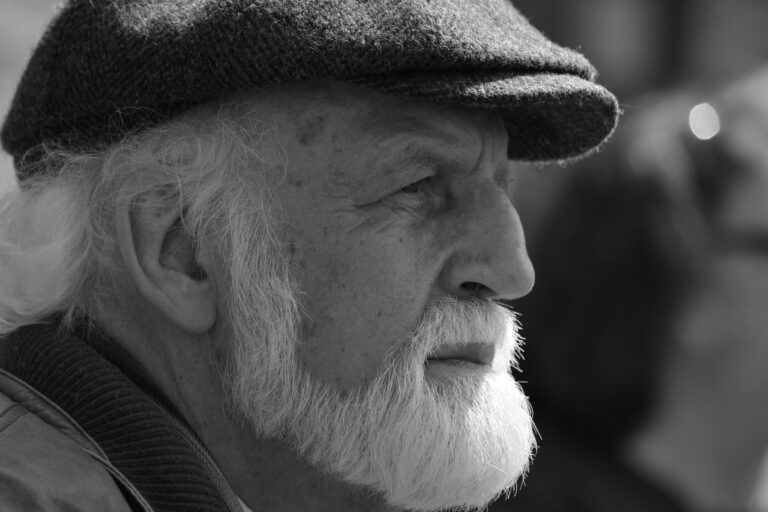
The international health, economic, and social crises caused by the coronavirus pandemic show no signs of abating. Every day, there’s a new fire to douse, a new problem to tend to, a new void to fill. Responding to these pressing matters is, understandably, everyone’s top priority. We can’t afford to lose focus now.
But we also can’t afford to lose sight of what’s ahead. We can place our hopes in mass vaccination to tackle the virus, but the damage it has done to our communities and social fibre will require organised efforts for deep and genuine healing. Now is a moment to reflect on how we will recover and move forward, as communities united by solidarity and shared determination.
Without doubt, among the casualties of the pandemic is local democratic participation. On account of in-person elections, town hall meetings, and collaborative decision-making processes being more complicated (or altogether impossible) to access or organise, the democratic fabric of our communities has taken a hit. The show must go on, but unfortunately, it often does so from the top-down.
While we’re tied to necessary safety and social distancing measures (which are, of course, life-saving and must be followed to the best of our abilities), there’s little room for citizens to start bottom-up initiatives, contribute to innovative solutions, or have constructive conversations with their representatives. This further erodes the trust between councils and residents and weakens the legitimacy of policy-making, leading to limited support among residents and a more profound sense of being unheard. In turn, this will lead to cynicism, causing more residents to grow reluctant towards engaging in participation projects once the situation changes.

It doesn’t look like things will radically change anytime soon, and that’s a problem. The core structures of our democratic societies are gradually unravelling. Without concrete action, we might lose a whole generation of participating residents, voices we sorely need to improve and co-create our communities.
However, as we’ve seen so many times in the past year, people tend to show surprising and nearly superhuman resilience and creativity in the face of adversity. Within every crisis lies an opportunity, a need to fulfil, a change to be made; and in this case, this opportunity lies in reinventing the way citizens and councils connect. Councils across Europe have already begun to seize this opportunity, working to compensate for the lack of in-person participation through pioneering Civic Tech projects.
In the London borough of Newham, COVID-19 disrupted the second round of the administration’s consultation project. The administration aimed to involve citizens in multiple urban planning and regeneration projects, such as the Queen’s Market Good Growth Programme, a £5.3 million initiative to redesign the Queen’s Market and the Queen’s Square, and provide affordable and high-quality spaces for work, culture and creativity.
As offline events (which are often used by councils for launching the platform and boosting engagement in the first few weeks) became impossible, the entire process was swiftly moved to the online realm. Through links on the council’s website, newsletters, printed posters and vinyl signs in shop windows, flyers and forms in public buildings, etc., residents were guided to the city’s online platform, which centralised and automated the process and allowed them to voice their opinions. Analysis of the data shows that 89% of all traffic to Newham’s online platform came from links – scanned QR codes, social media posts, and specific online ads.
In the French commune of Rueil-Malmaison, the administration’s participation platform quickly evolved from a practical nice-to-have to a central hub. During the first lockdown period, the council used the platform to share important information about safety measures and local regulations. It quickly became an online space to connect with peers and neighbours, which pushed it beyond the limits of its initial purpose. The platform became the online place-to-be to coordinate communal solidarity efforts, such as the distribution of 30,000 home-sewn masks, the delivery of 6,000 meals to vulnerable people, and citizens volunteering to help neighbours out with a wide range of tasks and errands.
In an era ruled by distance, Civic Tech managed to build bridges and connect communities. Online workshop features allowed residents and policymakers to maintain in-depth synchronous dialogue, ensuring democratic continuity in the process. Citizen proposals permitted them to take initiatives and share their ideas for the betterment of the whole community.
And the numbers don’t lie. Between January and October 2020, the number of active citizens on CitizenLab’s digital participation platforms has grown by 72%, proving that people are now more willing to get involved with local affairs on a virtual level. Over the same period, we’ve seen a 26% growth in the average percentage of citizens in a city or municipality using our platforms.
Technological innovations in Civic Tech offer both councils and residents an online alternative to traditional ways of collaborating, co-creating, and conversing. This is crucial to collectively tackle the crises we face today, and will prove to be equally critical in rebuilding and healing our communities.
To ensure an effective democratic process in the years to come, we all need to make it an absolute priority to make residents feel seen and heard by their representatives and use their input to make effective, accurate, and informed decisions. Civic Tech tools will continue to play a starring role in the re-engagement of swathes of the population in local decision-making processes and, thus, in the restoration of democracy as we know it.

Wietse Van Ransbeeck
Co-founder and CEO of e-democracy platform CitizenLab



